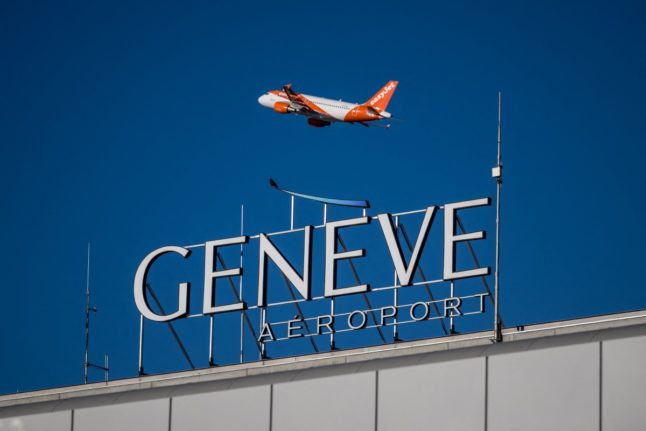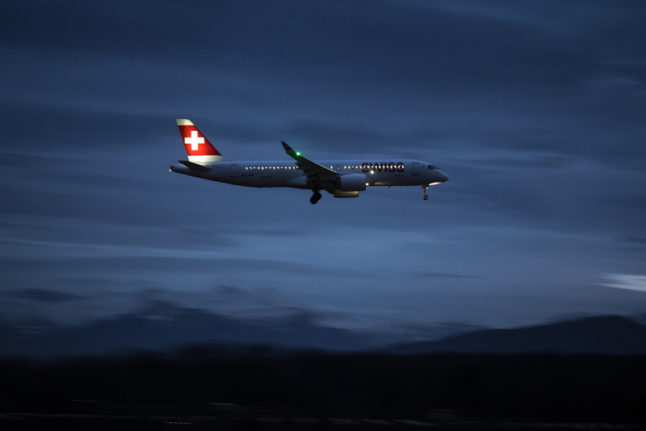A number of flights from Geneva airport were delayed and some were cancelled during the holiday rush Sunday, as dozens of ground staff went on strike over a wage dispute.
The workers began their strike at 4:00 am (0300 GMT) to protest conditions provided by their employer, the Dubai National Air Travel Agency (Dnata).
Dnata personnel, who handle about a fifth of the traffic through Cointrin airport, were striking to demand “dignified working conditions and decent wages”, the SSP public sector union said on X, formerly Twitter.
Around 80 strikers gathered in front of the airport before dawn, wearing bright yellow safety vests and brandishing union flags and posters with messages like: “Dnata is killing me” and “Precarious work means grounded flights”.
The airport acknowledged that the work stoppage was delaying flights during the busy Christmas rush.
“Some of the employees of a service provider are on strike today, causing an impact on our operations,” it said in a statement, apologising to passengers for the inconvenience.
Airport spokesman Ignace Jeannerat stressed that there were no problems facing flights not assisted by Dnata personnel.
“A majority of operations are going very smoothly,” he told AFP.
Luggage left behind
Dnata reportedly counts around 600 staff at the airport, who handle various ground operations, including ticketing services and baggage handling, for a number of international airlines such as British Airways, Air France and KLM.
Jeannerat said Dnata had been tasked with assisting 85 of the 417 flights scheduled for Sunday, a day when the Geneva airport was expecting 52,000 passengers to travel through.
All flights being handled by Dnata’s competitor Swissport “are functioning normally… Zero problems,” he said.
As for the Dnata-backed flights, he said “flights have either been delayed by two to three hours, or cancelled”.
So far, two flights had been cancelled, he said, adding it remained to be seen how many more would be impacted.
A handful of other flights had taken off, but without the passengers’ luggage, he said.
And for arriving flights, passengers were being permitted off but their luggage was left onboard.
‘Pressures’
The union has suggested that around half the Dnata staff have agreed to take part in the open-ended strike.
It said the duration of the stoppage would be evaluated “hour by hour”, according to the 20minutes online news site.
Workers are demanding that Dnata, an Emirati airport service provider, hike salaries by five percent.
They also want the company to provide a premium for some physically challenging jobs and additional pay for night and Sunday work, something Dnata has refused to do, union representative Jamshid Pouranpir told 20minutes.
Dnata has offered to raise salaries by three percent and agreed to drop a controversial plan to cut contributions to staff retirement funds, but that has not been enough to satisfy the workers.
Dnata representative Alexandre Koenig told 20minutes that the company remained “determined to find an agreement”, but said it would consider any work stoppage to be “illegal”.
SSP meanwhile decried “pressures” exerted by the company, alleging that it has threatened to fire employees who strike, the news site reported.
Negotiations are continuing, with the union announcing on X Sunday morning that “the threats against the strikers have been withdrawn”.
It also said that “better working conditions have been obtained,” adding though that there was still no deal.



 Please whitelist us to continue reading.
Please whitelist us to continue reading.
Member comments